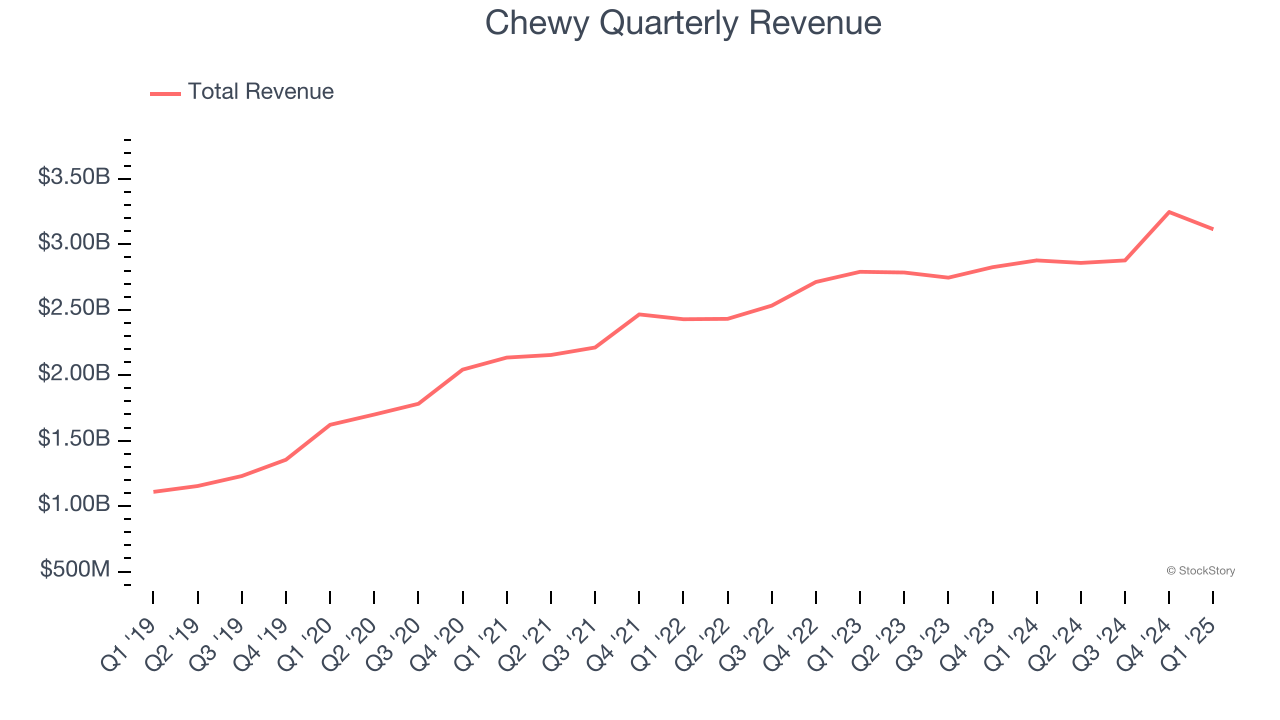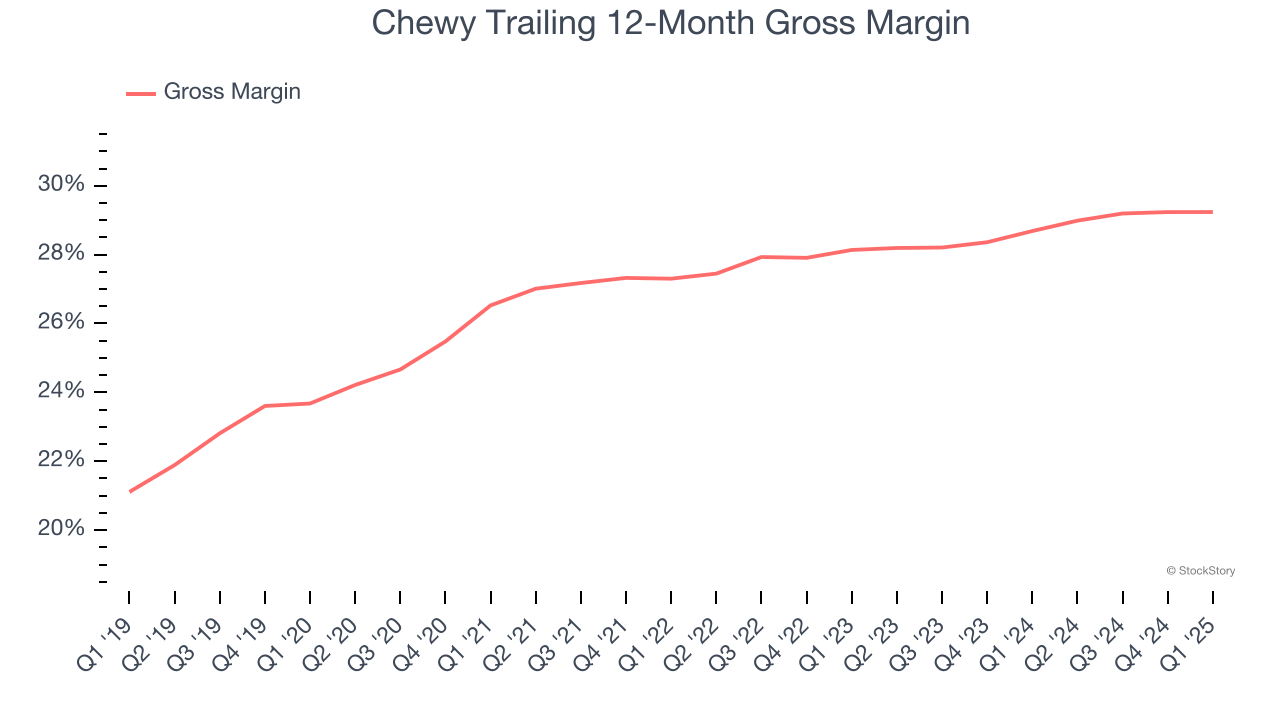
Over the past six months, Chewy’s stock price fell to $34.86. Shareholders have lost 6.2% of their capital, which is disappointing considering the S&P 500 has climbed by 5.3%. This may have investors wondering how to approach the situation.
Is now the time to buy Chewy, or should you be careful about including it in your portfolio? Get the full stock story straight from our expert analysts, it’s free.
Why Is Chewy Not Exciting?
Even with the cheaper entry price, we don't have much confidence in Chewy. Here are three reasons why there are better opportunities than CHWY and a stock we'd rather own.
1. Long-Term Revenue Growth Disappoints
A company’s long-term sales performance can indicate its overall quality. Any business can put up a good quarter or two, but many enduring ones grow for years. Unfortunately, Chewy’s 9.3% annualized revenue growth over the last three years was mediocre. This fell short of our benchmark for the consumer internet sector. 
2. Projected Revenue Growth Is Slim
Forecasted revenues by Wall Street analysts signal a company’s potential. Predictions may not always be accurate, but accelerating growth typically boosts valuation multiples and stock prices while slowing growth does the opposite.
Over the next 12 months, sell-side analysts expect Chewy’s revenue to rise by 5.1%, a deceleration versus This projection doesn't excite us and suggests its products and services will face some demand challenges.
3. Low Gross Margin Reveals Weak Structural Profitability
For online retail (separate from online marketplaces) businesses like Chewy, gross profit tells us how much money the company gets to keep after covering the base cost of its products and services, which typically include the cost of acquiring the products sold, shipping and fulfillment, customer service, and digital infrastructure.
Chewy’s unit economics are far below other consumer internet companies because it must carry inventories as an online retailer. This means it has relatively higher capital intensity than a pure software business like Meta or Airbnb and signals it operates in a competitive market. As you can see below, it averaged a 29% gross margin over the last two years. Said differently, Chewy had to pay a chunky $71.03 to its service providers for every $100 in revenue. 
Final Judgment
Chewy isn’t a terrible business, but it isn’t one of our picks. After the recent drawdown, the stock trades at 19.7× forward EV/EBITDA (or $34.86 per share). This valuation tells us it’s a bit of a market darling with a lot of good news priced in - we think there are better opportunities elsewhere. We’d recommend looking at a fast-growing restaurant franchise with an A+ ranch dressing sauce.
Stocks We Like More Than Chewy
Donald Trump’s April 2024 "Liberation Day" tariffs sent markets into a tailspin, but stocks have since rebounded strongly, proving that knee-jerk reactions often create the best buying opportunities.
The smart money is already positioning for the next leg up. Don’t miss out on the recovery - check out our Top 5 Growth Stocks for this month. This is a curated list of our High Quality stocks that have generated a market-beating return of 183% over the last five years (as of March 31st 2025).
Stocks that made our list in 2020 include now familiar names such as Nvidia (+1,545% between March 2020 and March 2025) as well as under-the-radar businesses like the once-small-cap company Exlservice (+354% five-year return). Find your next big winner with StockStory today.
StockStory is growing and hiring equity analyst and marketing roles. Are you a 0 to 1 builder passionate about the markets and AI? See the open roles here.





